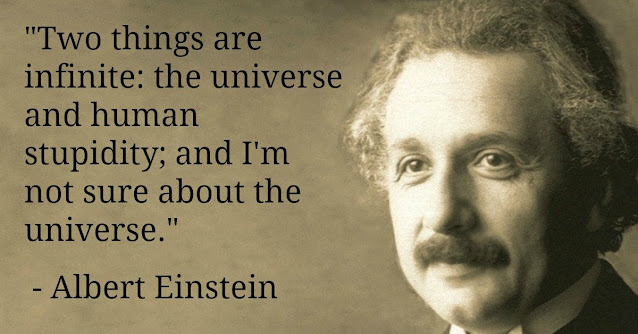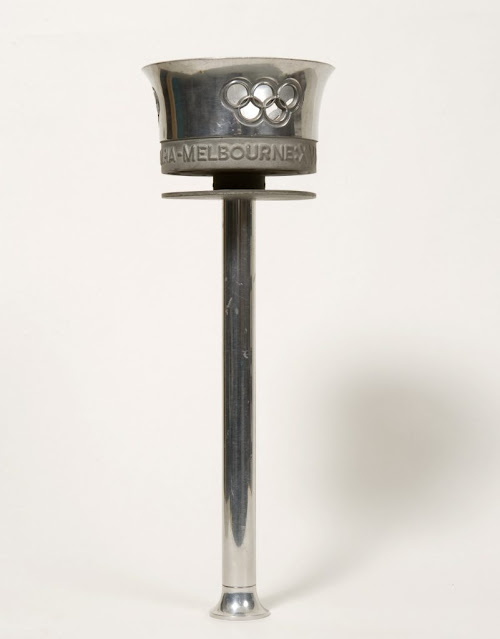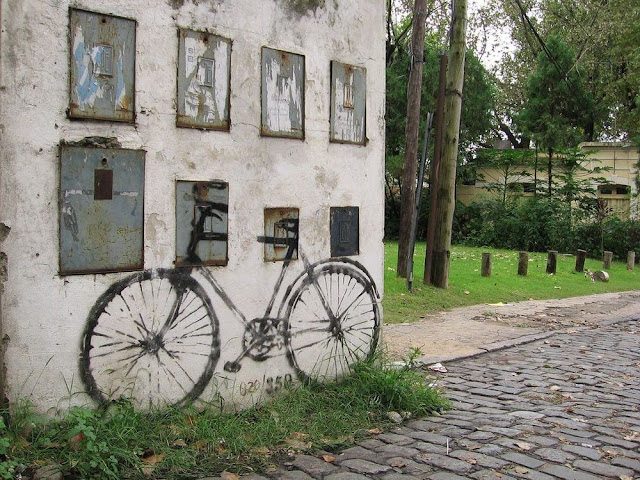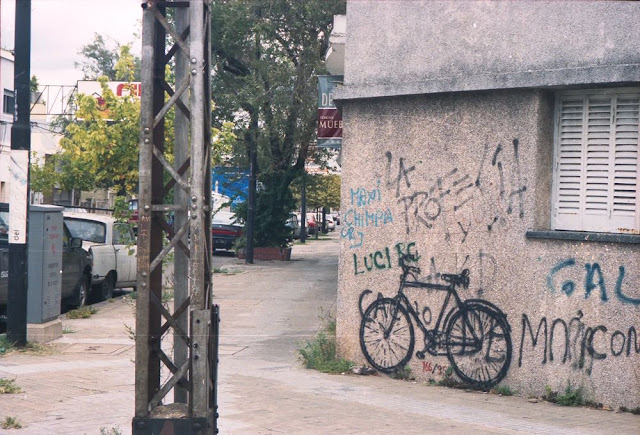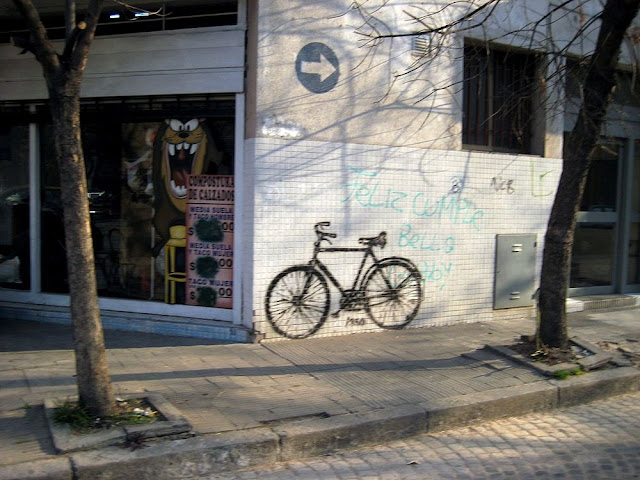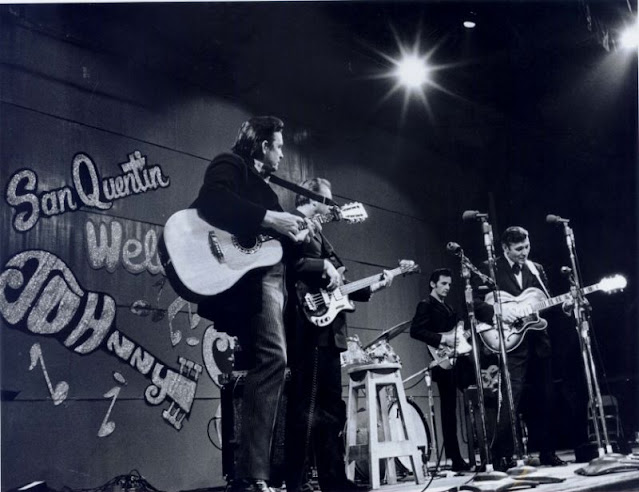Monday, July 31, 2023
TRAVEL COMPLAINTS
---------oOo---------
The following item was sent to me by John P, Byter, friend and triviaphile.
Thanks, John.
I have tried to confirm that the complaints are legit but there are no factchecks that I have found.
The Huffington Post says they are real.
In any event, I am reminded of:
It should be noted, however, that snopes.com rates as unproven that he actually said it.
Quote Investigator states that the earliest recorded usage is by German psychiatrist Fritz Perls in his 1942 book "Ego, Hunger and Aggression," where he wrote:
As modern times promote hasty eating to a large extent, it is not surprising to learn that a great astronomer said: "Two things are infinite, as far as we know — the universe and human stupidity." Today we know that this statement is not quite correct. Einstein has proved that the universe is limited.
---------oOo---------
John's email:
Actual complaints received by "Thomas Cook Vacations" from dissatisfied customers:
Some new and some old but all proves just how stupid people can be.
1. "They should not allow topless sunbathing on the beach. It was very distracting for my husband who just wanted to relax."
2. "On my holiday to Goa in India, I was disgusted to find that almost every restaurant served curry. I don't like spicy food."
3. "We went on holiday to Spain and had a problem with the taxi drivers as they were all Spanish."
4. "We booked an excursion to a water park but no one told us we had to bring our own swimsuits and towels. We assumed it would be included in the price."
5. "The beach was too sandy. We had to clean everything when we returned to our room."
6. "We found the sand was not like the sand in the brochure. Your brochure shows the sand as white but it was more yellow."
7. "It's lazy of the local shopkeepers in Puerto Vallarta to close in the afternoons. I often needed to buy things during 'siesta' time -- this should be banned."
8. "No one told us there would be fish in the water. The children were scared."
9. "Although the brochure said that there was a fully equipped kitchen, there was no egg slicer in the drawers."
10. "I think it should be explained in the brochure that the local convenience store does not sell proper biscuits like custard creams or ginger nuts."
11. "The roads were uneven and bumpy, so we could not read the local guidebook during the bus ride to the resort. Because of this, we were unaware of many things that would have made our holiday more fun."
12. "It took us nine hours to fly home from Jamaica to England. It took the Americans only three hours to get home. This seems unfair."
13. "I compared the size of our one-bedroom suite to our friends' three-bedroom, and ours was significantly smaller."
14. "The brochure stated: 'No hairdressers at the resort.' We're trainee hairdressers, and we think they knew and made us wait longer for service."
15. "When we were in Spain, there were too many Spanish people there. The receptionist spoke Spanish, the food was Spanish. No one told us that there would be so many foreigners."
16. "We had to line up outside to catch the boat, and there was no air conditioning."
17. "It is your duty as a tour operator to advise us of noisy or unruly guests before we travel."
18. "I was bitten by a mosquito. The brochure did not mention mosquitoes."
19. "My fiancée and I requested twin beds when we booked, but instead we were placed in a room with a king bed. We now hold you responsible and want to be reimbursed for the fact that I became pregnant. This would not have happened if you had put us in the room that we booked."
Sunday, July 30, 2023
KITCHEN FAILS
---------oOo---------
Times People Tried Cooking Things And Failed Miserably
A selection of photographs and captions from:
---------oOo---------
Tonight Was Foreign Culture Night In My House So I Decided To Cook A Traditional Dish From Pompeii
__________
__________
I Was Making Home Made Chicken Stock. After Simmering For Hours, The Recipe Said To Pour It Through A Strainer. God Damn It
__________
We Tried To Make “Ladybug Rolls”
__________
__________
My Sister Made Some French Fries
__________
My Friend Made A “Hedgehog” For Her 14-Year-Old Son’s Birthday
__________
My Night After Work
__________
Friend Sent Me This. Composition: “Dad Tried To Make Wine”
__________
Found The Spoon, Honey
__________
I Baked Some Strawberry Cakes In Cat-Shaped Pans, Then Iced Them. They Came Out Looking Like Burn Victims
__________
5 Minutes Before Closing After A 12-Hour Shift
__________
This Sums Up My Day. Why Isn’t My Stock Simmering… It’s Been Over An Hour
__________
Boiled An Egg This Morning And I Think Something Went Horribly Wrong
__________
Thought You Guys Might Like This Pie I Baked
__________
Tried Cooking A Sweet Potato In My New Air Fryer Today
__________
Guess I Cut It A Little Too Hard
__________
Happy Thanksgiving From My Little Sister’s First Ever Turkey
__________
I Tried To Make A Cake With A Lobster Shaped Dish
__________
__________
Still Looking For An Answer On How This Happens
__________
Saturday, July 29, 2023
SITE SEEING . . .
---------oOo---------
A quick look at some items from various internet sites.
---------oOo---------
From:
Smithsonian Magazine
July 27, 2023
‘Perfectly Preserved’ Glassware Recovered From 2,000-Year-Old Shipwreck
Archaeologists have recovered thousands of pieces of glassware—many of them “perfectly preserved”—from a 2,000-year-old shipwreck in the waters between Italy and France.
The Roman vessel, called the Capo Corso 2, is located 1,148 feet below the surface between France’s Cap Corso peninsula and Italy’s Capraia island.
Using two remotely operated vehicles (ROV)—named Arthur and Hilarion—researchers used the mounted claw system of Arthur to recover artifacts from the wreck. The robot pulled up two bronze basins, some Bronze Age jars called amphorae and a large collection of glass tableware objects, including bowls, cups, bottles and plates.
The Roman vessel may have sunk while transporting glass from the Middle East to France. Archaeologists estimate the wreck dates back to the end of the first century or the beginning of the second century C.E.
Archaeologists recovered a collection of blown-glass tableware in excellent condition.
---------oOo---------
From:
Kickass Facts – Facts Encyclopedia
July 28, 2023
20 Interesting Real Life Cases of Deception and Trickery
Here are some of the above 20 items:
Between 1932 and 1972, the US government tricked around 600 black citizens from Alabama into believing that they were receiving free healthcare. Whereas they were actually test subjects to study the natural progression of untreated syphilis.
Source:
Wikipedia
From 1946-1953, Quaker Oates and MIT conducted an experiment on unsuspecting, mentally retarded children. They tricked them into eating radioactive cereal by telling them they were in a “science club.”
Source:
Wikipedia
This one has been the subject of a Bytes post previously but is worth another airing. . .
A man protested against the 1956 Olympic torch relay by carrying a fake flame, consisting of a pair of underpants set on fire in a plum pudding can, attached to a chair leg. He tricked onlookers and even handed it to the Mayor of Sydney, Pat Hills before escaping without being noticed
More on the above:
Possibly the only surviving photograph of Barry Larkin carrying the fake torch.
Barry Larkin Olympic torch
Wooden chair leg painted silver as handle; plum pudding can as top.
What the real torch looked like.
The torch’s early arrival caught the mayor off-guard. But he proudly accepted the torch and held it high, while Larkin quietly disappeared in the crowd. As the mayor‘s speech rambled on, there was a murmuring among the dignitaries, and then one of them interrupted the mayor to whisper that the torch he was holding was actually a chair leg with a flaming plum pudding can on top. When Dillon approached the Town Hall a few minutes later with the real torch, the confused crowd grew surly. An army truck had to clear a path for the next torchbearer to leave the city.
During WWII, during Operation Mincemeat, British intelligence successfully deceived Hitler into thinking the Allies were landing in Greece rather than Sicily by dressing up a dead homeless man in a captain’s uniform, fitting him with fake documents, and dropping him off the coast of Spain.
Source:
Wikipedia
---------oOo---------
From:
Amusing Planet
June 27, 2023
Fernando Traverso's Bicycles
Throughout the streets of Rosario, a city in the central Argentine province of Santa Fe, you will find hundreds of images of bicycles stencilled in the walls. Each bicycle pay homage to a victim of Argentina's military dictatorship.
The project was started in 2001 by Fernando Traverso, an Argentinian hospital worker and political activist, who began by spray painting twenty-nine life-sized bicycle stencils on walls, windows, doors and other spaces across his home town Rosario in memory of his twenty-nine friends who were abducted and killed during Argentina's state-sponsored terrorism which lasted from 1974 to 1983.
Bicycles played a key role during the resistance, as most members used them as their primary mode of transport. Traverso noticed that as his friends started disappearing, often their bicycles would be left behind. Seeing an abandoned bicycle was often the first sign that its owner had disappeared. These bicycles left standing in the streets of Rosario stood as memorials to those who were taken. Almost 25 years later, Traverso decided to make these memorials more permanent by spray painting the bicycle image on buildings throughout the city. Today, there are 350 bicycles stencilled across the city in memory of the 350 who disappeared in Rosario. It is estimated that some 30,000 people were killed or disappeared across the country during the military dictatorship of Argentina.
---------oOo---------
From:
Bored Panda
45 Humorous One-Panel Comics To Take A Break From The Everyday Hustle And Bustle
A selection of the above comics, created by Australian cartoonist Tim Whyatt . . .
Friday, July 28, 2023
JOHNNY CASH AND SAN QUENTIN
---------oOo---------
I previously posted an item on AI in music, which included Johnny Cash’s voice having been artificially recreated using AI to sing the Barbie song to the Folsom Prison Blues melody.
In preparing that, I looked again at Cash singing San Quentin at that prison. An amazing song, performance with directed hostility in the lyrics. Amazing that he was permitted to perform it for the inmates.
Here are comments on the song and performance, plus a reprint of an article that is fascinating about it.
__________
Video:
Click on the following link to watch the live performance in the prison:
__________
Some comments at the above link:
This man walked into San Quentin and performed a song utterly trashing San Quentin and the entire prison system. Absolutely legendary.
This song is incredible, but what really makes this entire album so moving is the response from the audience.
One of the most revolutionary live performances of all time, no one had the balls to go into a place like this and put on a great show but Cash. What he did for prison reform in America will never been forgotten.
I love Johnny Cash's voice. Looking at these men's faces, not knowing anything about them, whether their incarceration is justified or not, makes me realise they are, after all, human beings. This must have been a great event for them.
That guitar rift cuts right through you. It’s almost as though you can feel the despair in it, absolutely incredible.
One of the most iconic, heartbreaking and revolutionary songs ever. Goosebumps hearing the crowd cheering. Johnny sang their thoughts, made them laugh and cry. Absolute legend. RIP
I still get chills from this! RIP Johnny we miss you sir.🙏🏼
This sends shivers down my spine. RIP Johnny Cash.
They all loved him!!! Being so honest and open!!!!! I love Johnny Cash!!!!!!
This is literally one of the greatest performances of all time! Gave me chills
1969 I was 15 now I'm 66 and rediscovered Johnny Cash. The man is a legend.
Great charisma, great voice ... He's the John Wayne of the music world.❤
Having spent time in prison, the cheers of the prisoners is palpable. This song hits hard
I honestly can't believe they allowed him to play a song like this about San Quentin at San Quentin. Like really, that's pretty amazing.
I often wonder if the prisoners are still alive and if they ever saw the outside world again, this song is just a masterpiece
"And I'll walk out a wiser weaker man" That line always sticks with me.
This is music history
RIP Johnny Cash
You will never be forgotten
__________
The lyrics:
"San Quentin"
San Quentin, you've been livin' hell to me
You've blistered me since nineteen sixty three
I've seen 'em come and go and I've seen them die
And long ago I stopped askin' why
San Quentin, I hate every inch of you.
You've cut me and you scarred me through and through.
And I'll walk out a wiser weaker man;
Mister Congressman you can't understand.
San Quentin, what good do you think you do?
Do you think I'll be different when you're through?
You bend my heart and mind and you warp my soul,
And your stone walls turn my blood a little cold.
San Quentin, may you rot and burn in hell.
May your walls fall and may I live to tell.
May all the world forget you ever stood.
And may all the world regret you did no good.
San Quentin, I hate every inch of you.
__________
Some facts:
Johnny Cash at San Quentin is the 31st overall album and second live album by American singer-songwriter Johnny Cash, recorded live at San Quentin State Prison on February 24, 1969, and released on June 16 of that same year.
The album was the second in Cash's conceptual series of live prison albums that also included At Folsom Prison (1968), På Österåker (1973), and A Concert Behind Prison Walls (1976).
The album was certified gold on August 12, 1969, platinum and double platinum on November 21, 1986, and triple platinum on March 27, 2003.
The album was nominated for a number of Grammy Awards, including Album of the Year and won Best Male Country Vocal Performance for "A Boy Named Sue."
The album cover photo by Jim Marshall is considered to be an iconic image of Cash, with Marshall Grant's Epiphone Newport bass guitar famously silhouetted in the foreground.
Two songs are performed live on stage for the first time during the san Quentin show: "San Quentin" and "A Boy Named Sue”. Cash spontaneously decided to perform "A Boy Named Sue" during the show and neither the TV crew nor his band knew he planned to do it.
A crew from Granada Television in the UK filmed the concert for broadcast on television. In the extended version of the concert released by Columbia/Legacy in 2000, Cash is heard expressing frustration at being told what to sing and where to stand prior to his performance of "I Walk the Line". The famous image of an angry-looking Cash giving the middle finger gesture to a camera originates from the performance; in his liner notes for the 2000 reissue, Cash explains that he was frustrated at having Granada's film crew blocking his view of the audience. When the crew ignored his request to "clear the stage", he made the gesture. (A different explanation is given below.).
__________
The article:
Why It Mattered: Johnny Cash – ‘At San Quentin’
By Luke Saunders
December 2, 2022
The Man In Black was always one to champion the underdog. But Johnny Cash never made a bolder statement than At San Quentin.
On New Years Day 1959, Johnny Cash played his first-ever prison show at San Quentin. A frosty winter’s morning in San Francisco, Cash was not nervous about entering a maximum-security prison armed with one a guitar and his voice. Hell, San Quentin wasn’t even the most notorious prison in San Fran.
Aside from recording one of the most famous live albums of all time and taking one of the most iconic photos of all time, Johnny Cash inspired one unsuspecting inmate in the crowd that day who went on to become a country luminary in his own right: Merle Haggard.
Cash was arrested several times over course of his life but was never sentenced to prison. That being said he felt immense compassion for those who had made poor choices, as he himself had. As well as performing at prisons, always for free, Cash tirelessly campaigned for the rights of prisoners.
Folsom Prison Blues earned Johnny Cash his first Top 10 country hit in 1956, giving his fledgling career and critical jump start. The perspective of this song shaped the trajectory of Cash’s life and birthed the concept of some of the best selling live albums of all time. Johnny Cash remembers the forgotten men. Inside a prison, Cash sang like a croaky siren to those lost souls whose spirits were destroyed by the mindless penal system.
On New Years Day in 1959, Merle Haggard, who was serving 10 years for burglary, was in the crowd at San Quentin and cites the experience as a formative life-changing moment.
Haggard was a product of Bakersfield, California, a flea-bitten Central valley town which was the end of the line for tens of thousands of poor, white farmers who migrated west during the ’30s, ’40s, and ’50s looking for work. These Oklahomans and Texans were colloquially referred to under the blanket term ‘Okies’ and brought with them a love of country music.
Merle Haggard would eventually become a draughtsman of the no-frills Bakersfield Sound, which shook the Nashville industry in the 1960s. But not before he got caught on the wrong side of the tracks and found himself at the mercy of the legal establishment.
On this fateful day, two of country music’s most revered outlaws crossed paths and set in motion the cogs that would change the genre forever.
In 1957, at the age of 18, Haggard was arrested on a burglary charge and sentenced to 15 years in San Quentin – yes, he turned 21 in prison.
“He had the right attitude,” Haggard later recalled. “He chewed gum, looked arrogant and flipped the bird to the guards — he did everything the prisoners wanted to do. He was a mean mother from the South who was there because he loved us. When he walked away, everyone in that place had become a Johnny Cash fan.”
Merle later confronted it as a guest on the ABC’s The Johnny Cash Show in August 1969. Earlier that year, Cash released his iconic At San Quentin, and encouraged Haggard to open up about his rough past and the autobiographical elements of his hit, Mama Tried.
Haggard: “Funny you mention that, Johnny.”
Cash: “What?”
Haggard: “San Quentin.”
Cash: “Why’s that?”
Haggard: “The first time I ever saw you perform, it was at San Quentin.”
Cash: “I don’t remember you being in that show, Merle.”
Haggard: “I was in the audience, Johnny.”
After that fateful performance, two major things happened. Johnny Cash made a career out of recording prison performances. And Merle Haggard was given the inspiration to launch a career after jail that resulted in 38 No.1 hits on the Country Charts, Sing Me Back Home, Okie From Muskogee and Today I Started Loving You Again.
Though that concert wasn’t recorded, Cash continued to tour prisons for the next ten years before recording At Folsom Prison in 1968. On February 24, 1969, recorded an incredible performance back at San Quentin. While Haggard was no longer in the audience, Cash gave the performance of a lifetime and took one of the most iconic photos in history. His photographer asked, “John, let’s do a shot for the warden.” The result is one of the most imitated poses of all time.
Opening the show with a new Dylan tune, Wanted Man sets the tone for his sermon to the sinners. Cash’s rapport is instant. I Walk The Line is presented as hard and tough as his storytelling is at its finest.
One of the only recordings of Starkville City Jail is found here, a comic retelling of a night he spent in custody. The inmates are on the edge of their seats, erupting into rapturous applause at ever knee-slapping quip or political jab at the system. Furthermore, Cash cuts a definitive take of the overtly Oedipal, A Boy Named Sue, a humorist tale by poet Shel Silverstein.
A tremendous double-take of San Quentin shows the incredible difference between both versions, before closing out the set with a brief, yet pounding rendition of Folsom Prison Blues.
“He always identified with the underdog,” says Cash’s younger brother, Tommy Cash. “He identified with the prisoners because many of them had served their sentences and had been rehabilitated in some cases but were still kept there the rest of their lives. He felt a great empathy with those people.”
The concert is over and those humans are still behind bars the following day, on the other side of the Bay. The immense connection and presence of that concert if something that has been imprinted on many listeners since. I defy a music star today to connect so deeply, and relatable, to the outcasts of society we have condemned to our dungeons.
____________


